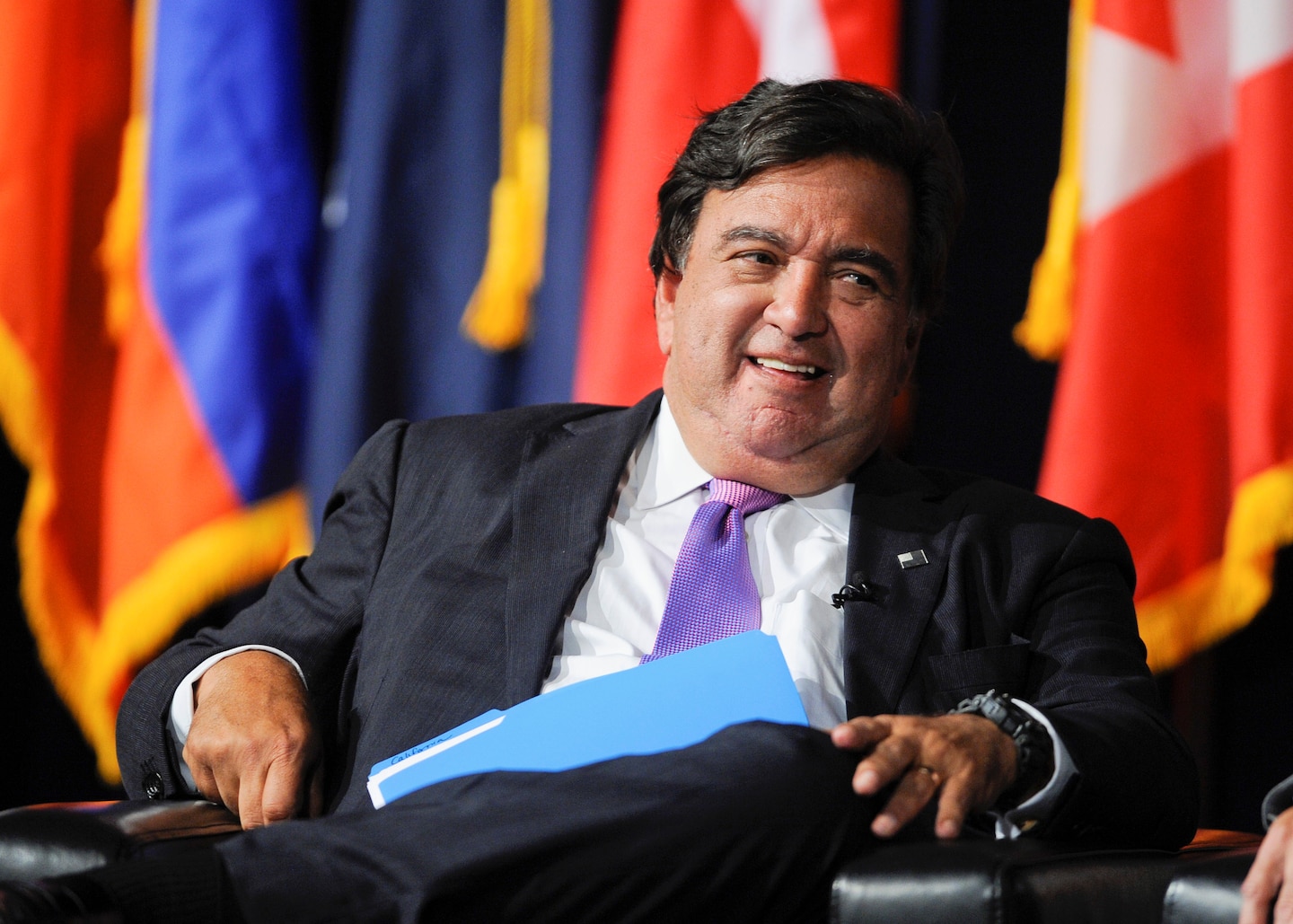Richardson meets with Maduro but fails to secure release of American Green Berets detained in Venezuela raid

“I think I caught him on a bad day, when he was airing a lot of grievances,” said Richardson, who has met with Maduro several times in the past. “I was optimistic in the beginning. We had an hour-and-a-half meeting with Maduro … It was very cordial, very friendly, but he wouldn’t budge.”
The trip nevertheless amounted to the most significant diplomatic effort in Caracas by an American since Washington severed ties with Maduro and shuttered the U.S. Embassy there early last year. Though officially a private humanitarian mission, the trip was “coordinated” with the U.S. government, Richardson said.
Richardson said the mission had been worked out with help from the Trump administration’s special representative to Venezuela, Elliott Abrams, and Special Presidential Envoy for Hostage Affairs Roger Carstens. He said he carried no direct message from the U.S. government, but had offered to help facilitate further humanitarian aid for Venezuela.
“I do think they lost an opportunity to make things better on the humanitarian front,” Richardson said. “I think it’s a slight open door with a disappointing result that I thought was attainable. We’ll persist, but we’ll let some time go by first.”
He arrived in Venezuela on Monday, tweeting his intention to intervene with Maduro. Richardson, a five-time Nobel Peace Prize nominee for his “informal diplomacy” on behalf of international prisoners and hostages, said he engaged the Venezuelans at the request of family members of a group of prisoners being held by Maduro’s government.
The prisoners include a half-dozen oil executives known as the “Citgo 6” — five of them dual U.S. and Venezuelan citizens — who were detained in Venezuela on corruption charges in 2017. Richardson also sought the release of Luke Denman and Airan Berry, two American former Green Berets arrested in May during a haphazard raid aimed at ousting Maduro.
Richardson took a phone call with Maduro on Tuesday, ahead of his face-to-face meeting with the 57-year-old leader Thursday. He said Venezuelan Vice President Delcy Rodríguez, Communications Minister Jorge Rodríguez and Maduro’s wife, Cilia Flores, were all present at the talks.
Richardson declined to discuss Maduro’s list of “grievances” aired in the talks. However, a day before his face-to-face meeting, a U.S. Navy vessel — the destroyer USS Pinckney — conducted operations off the Venezuelan coast and in waters claimed by Maduro’s government.
Richardson said he had noted to Maduro that progress was being made in a previously reached aid deal between the socialist government and opposition leader Juan Guaidó. The effort, including the distribution of medical aid to help ease a worsening coronavirus outbreak in the struggling South American nation, still needs logistical details to be worked out, but it will be paid for with Venezuelan government funds to be unfrozen by the United States and Europe.
He said he offered to spearhead further aid, as long as Guaidó remained involved. “They were okay with that,” Richardson said.
But in the end, it wasn’t enough.
In a statement Friday, Abrams reiterated U.S. calls for the release of the Citgo 6. The former employees of Houston-based Citgo Petroleum, an oil refiner previously controlled by the Maduro government, were arrested during a business trip to Caracas in November 2017 and have since been charged with money laundering, embezzlement, racketeering and participating in organized crime. The men deny all charges against them.
“Hearing after hearing has been canceled and they have never had a trial,” Abrams said. “They should be released to return to their families immediately. Our hearts go out to these men and their families. The Department of State will continue our efforts to free them until the day when they are released.”
A quick release for Denman and Berry — given their involvement in a recent military mission against Maduro — has always been seen as a long shot. But observers had hoped Richardson might be able to secure the release of at least some of the oil executives — Alirio Zambrano, Jose Luis Zambrano, Gustavo Cardenas, Jorge Toledo, Jose Angel Pereira and Tomeu Vadell. In February, the men were moved from house arrest to the Helicoide, the notorious Caracas prison run by the SEBIN, Maduro’s feared intelligence police.
Instead, the mission appeared to be the opening of a longer process to secure their release. The severing of diplomatic ties and the Trump administration’s professed aim to oust Maduro have complicated Washington’s ability to directly advocate for the prisoners’ release.
Family members and Maduro’s government called Richardson’s outreach a “positive” step. In an interview with The Post in January, Maduro called for direct talks with the United States.
“We consider this to be a positive first approach for future actions of goodwill,” Jorge Rodríguez said in a text to The Post.
Mark Denman, brother of Luke Denman, said he has been frustrated by what he described as a failure by U.S. officials to communicate with his family about his brother’s legal plight. He said a videoconference with Richardson’s Center for Global Engagement would be happening “in the next few days” to follow up on the trip.
“I’m sure they got some idea about what it’s going to take to get all these guys home,” Denman said. “I had no real expectation that Luke and Airan would be coming back with them, but I’m happy just to have the process started. Up until Richardson’s involvement, we haven’t had any help from anyone in the U.S. government.”






